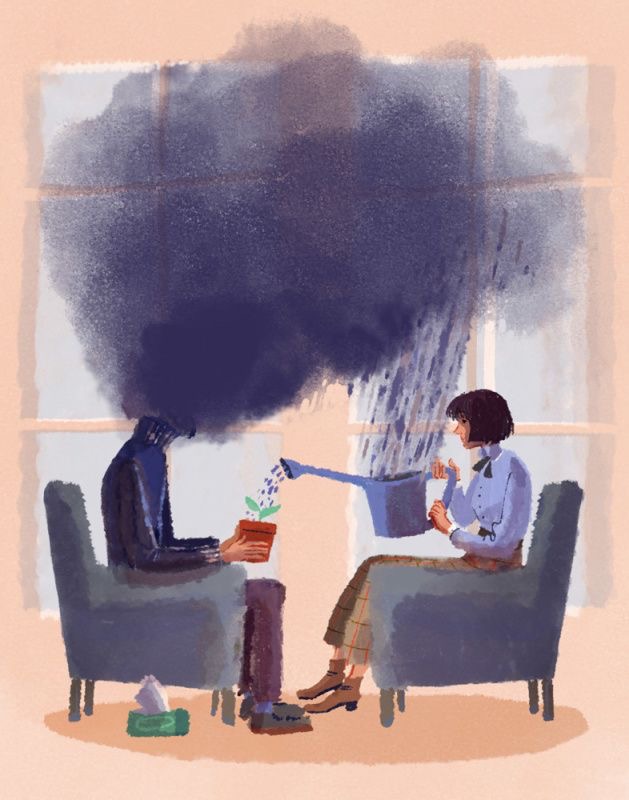The body follows the mind. Many of us are told to think positive before an exam or a job interview because if we think positively, we can boost our self-confidence. It is positive thinking that helps us have a better outlook on life and cope in stressful life situations.

In Islam, our bodies are seen as a gift from Allah, and we are obliged to treat it as such. And in order to do this, we need to understand that our mind and our body work together. Complement each other. Support each other. So why is it that mental health, in this day and age, is still seen as taboo and getting help for it is looked down upon?
For some people, recovering from setbacks and life stressors is easier, whereas others need a bit more guidance and support in doing so. During difficult times, there is no harm in actively seeking out professional help, be it counselling or therapy. A professional will not just help with the problem at hand but will provide the tools and skills needed to overcome any futurelife stressors.
There are a number of things that we can learn from therapy. From emotional regulation to communication skills, therapy empowers individuals and helps them find their strengths and confidence. As Muslims, we have a duty to gain knowledge throughout our lives, and this is not just limited to academia. Learning how to regulate emotions, such as stress and frustration in a productive way, as well as learning to express positive emotions in a healthy way, is still learning.

Believing in Islam does not require us to be superhuman. So why is it that we are told to suppress our feelings and pretend everything is okay, even when it is not? Remember, Allah gives trials to those He loves the most and this life is not meant to be perfect. Some trials come in form of financial difficulty, workplace issues, or relationship issues, just to name a few. In these types of difficulties we are told to share our worries. Financial issues? Ask the bank for help. Workplace issues? Speak to a manager or supervisor, and so on and so forth. So why is mental health brushed under the rug?
There is a misconception that feeling low or anxious suggests that your imaan is low or that you do not have Tawakkul. This could not be further from the truth. The Prophet Muhammed (PBUH) himself went through a great deal of grief throughout his life, especially during the Year of Sorrow. In this year alone, the Prophet (PBUH) lost his wife, Hazrat Khadija, of 25 years, he also lost his uncle, Abu Talib, all whilst there was a boycott of Muslims in Makkah. So, if someone as great as the Prophet Muhammed (PBUH) can go through episodes of stress and heartache, then who are we to pretend that these feelings do not exist?
Through the lifestyle and teachings of the Prophet (PBUH) we know that Islam commands us to take care of ourselves and our health. Feeling low and going through grief is inevitable in life, and people should not be made to feel guilty or ashamed to ask for help. With our mental state dictating how our bodies respond to everyday life, it is vital that we take the utmost care of our psychological health to make sure that we are strong mentally, and not just physically. Our bodies are temples, and should be treated as such and the only way to do that is to be healthy in all areas, starting from our thoughts, emotions and feelings.









What do you think?
You must be logged in to post a comment.